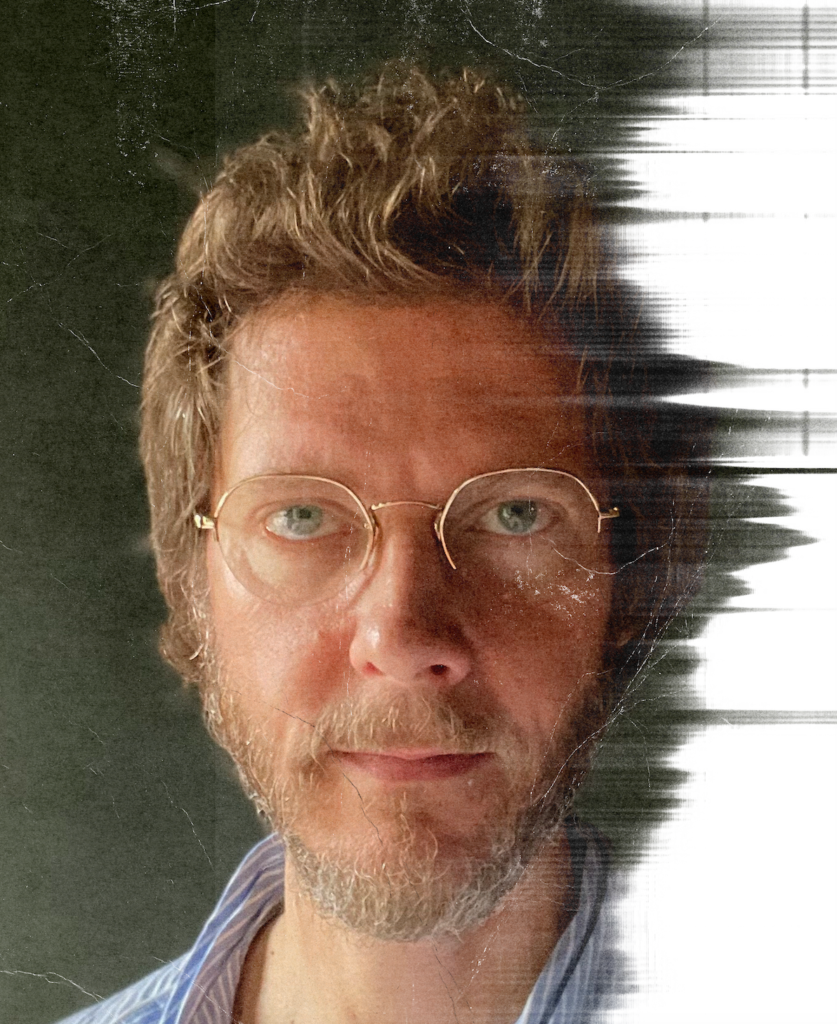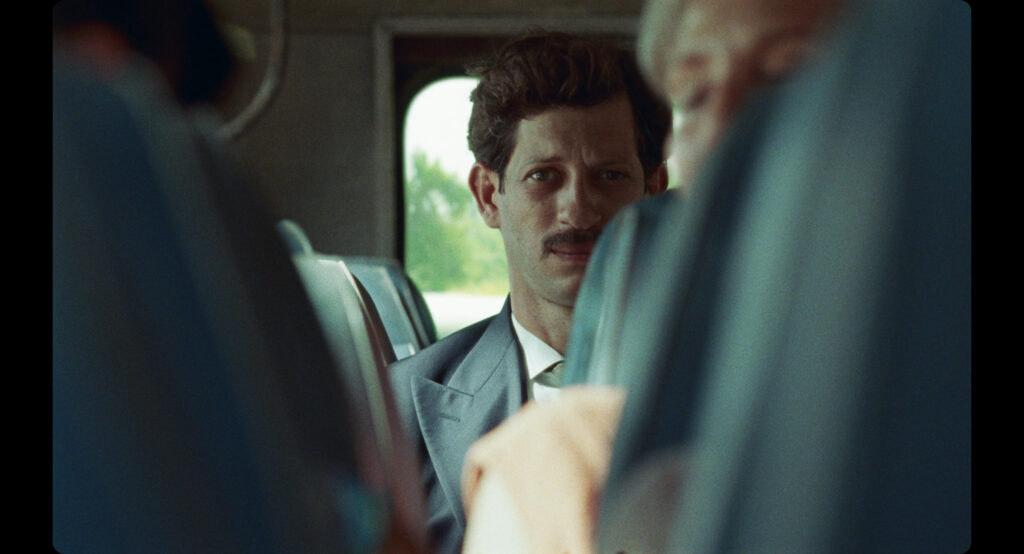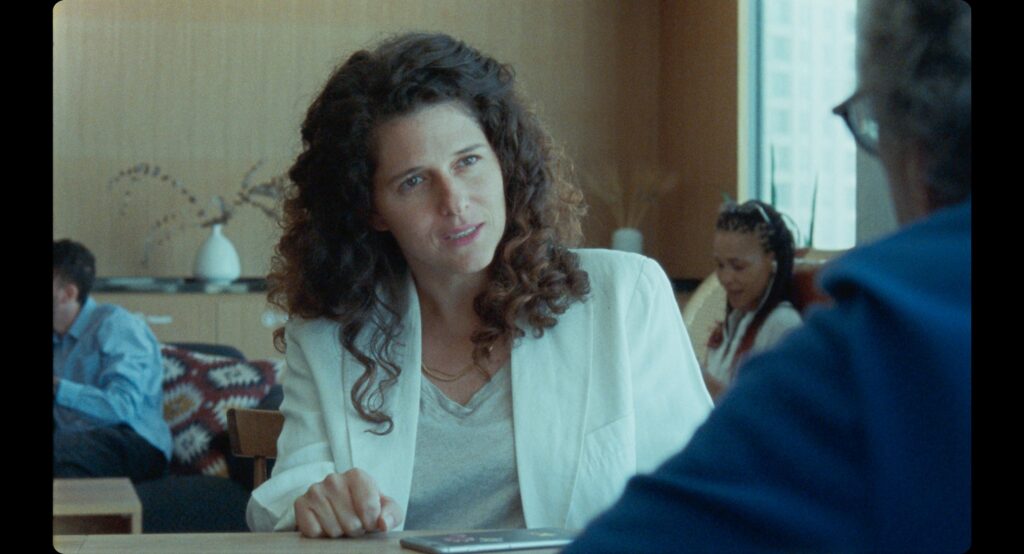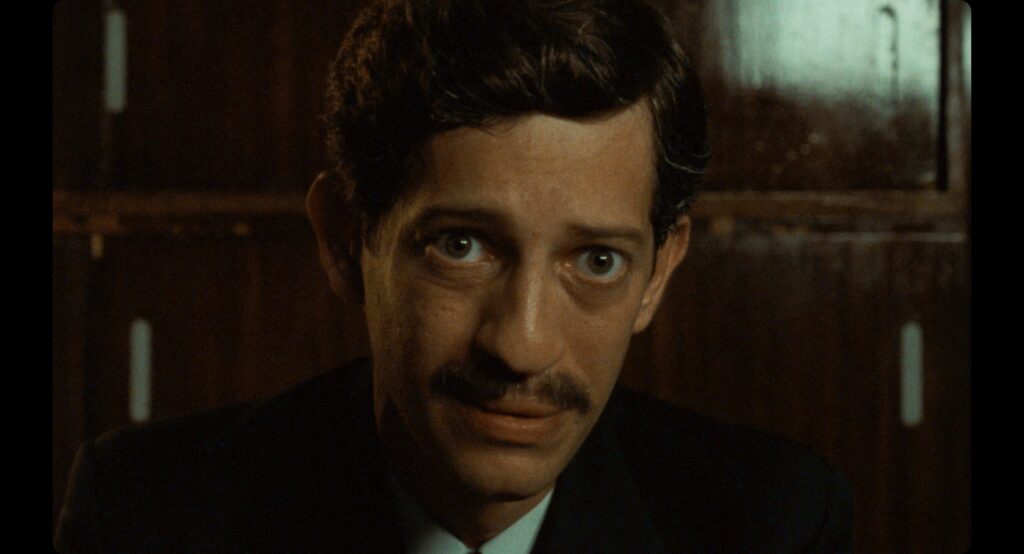A Historic Tale Gets New Texture in Jake Paltrow’s Latest Film, June Zero. Three distinct perspectives bring nuance and empathy to the story of an infamous Nazi war criminal’s trial in Jake Paltrow’s film. The director takes DAVID GRAVER on the long, challenging journey to get the movie made.

Director Jake Paltrow
Joining the ranks of Steven Spielberg and Quentin Tarantino, Roberto Benigni and Taika Waititi, Emmy-nominated director Jake Paltrow has turned his camera toward the atrocities of the Holocaust for his latest film, June Zero. In place of battlefields and concentration camps, however, Paltrow’s moving picture focuses on three interconnected perspectives surrounding the 1961 trial of Nazi war criminal Adolf Eichmann, who orchestrated the mass murder of Jews during World War II. June Zero is set in Israel, where Eichmann was detained prior to his execution, and follows the events from the points of view of a 13-year-old Jewish Libyan immigrant; Eichmann’s Jewish Moroccan prison guard; and an Israeli police investigator who survived unfathomable abuse during the Holocaust.
Paltrow cowrote and directed June Zero, and his unique narrative approach to the well-known central story and his textured visual language (partially the result of the medium—16mm film) craft a taut, emotional cinematic experience. In 2023, June Zero premiered within Film at Lincoln Center’s New York Jewish Film Festival. Soon after, it toured the festival circuit—from the Karlovy Vary International Film Festival in the Czech Republic to France’s Deauville American Film Festival, the Jerusalem Film Festival, and more.

June Zero
Prior to the film’s inception, Paltrow was taken by two lesser-known details of the Eichmann story. “One was that no Ashkenazi Jews were allowed to guard Eichmann,” the director tells Avenue. “I didn’t know that. Many people who are interested in the history of this period don’t know that.” As he explored the story further, he also discovered that a factory in Israel assembled a one-time-use crematorium to dispose of Eichmann’s body. “In Judaism,” Paltrow continues, “there is no cremation. You are dealing with a culture and a religion that doesn’t dispose of bodies in this way—but for this one legal and political purpose, they decided to do this.”
Intrigued by these unfamiliar elements, Paltrow immersed himself in research, traveling to Israel to uncover more. “I spoke to some of the participants who are still alive, who worked at the factory. We found an older man who claimed that when he was a little boy, he worked on the assembly of the crematorium at the factory. We filmed him. He was very convincing.” This man’s testimony inspired David, the compelling young character at the heart of June Zero.
Paltrow penned the Hebrew-language film—which also features scenes in Arabic, English, and Spanish—with Tom Shoval. June Zero’s use of language lends the film both gravity and authenticity. “When I was writing it, I was thinking about it in English,” Paltrow says. “My Hebrew is not very good. I can read it and I can type it, and I have a vocabulary, but I cannot speak it very well. Through the process, in talking with Tom Shoval, who I became very close with, he always felt very confident about my ability to do it in Hebrew. I felt that it would be the most meaningful version in Hebrew.”

June Zero
That said, the cowriters drafted primarily in English. Then they had the script translated into Hebrew and back into English. “I made changes again and translated it back,” Paltrow explains. “That’s how we made this movie. Once I committed to doing it in Hebrew, it wasn’t as daunting as I thought it would be.” Through rehearsals, the team was able to iron out any linguistic awkwardness. These rehearsals also empowered Paltrow, who, even if he did not know all the words on the page at first, was aware of the emotional context behind each scene. By the time they filmed, he had a command of everything.
There is a relentless magnetism to the performances in June Zero, underscored by nuanced emotional depictions. “People who love movies and watch a lot of movies know the difference between good acting and bad acting in any language or context,” Paltrow says. “Quality control does not change with the language you’re working in.” As a filmmaker, he believes the power of a performance starts with the writing.Paltrow looked to Shoval, who lives in Israel, to infuse cultural elements into the story that would only be understood by a resident. “What I knew was in telling it from the boy’s point of view, was that I was not just telling a personal story, I was telling a part of history that’s not as well-known outside of Israel. It’s the clash between Ashkenazi culture and Mizrahi culture, when Jews from the Middle East and North Africa were coming to the country and were being treated differently,” says Paltrow. “There’s a general belief that there are almost no experiences of Jews from the Middle East and North Africa interfacing with the Holocaust—but that’s not the case, especially for Jewish people from Libya in particular.” This background informs David’s character, as well as that of his father and it influences their ability to integrate into society.

June Zero
A first-time actor, Noam Ovadia, brought the character of David to life. “Although he had never acted before, he had this natural, emotional quality. He was funny and unusual in all the ways that make something cinematic,” Paltrow says.
To ensure that Ovadia could live up to the intensity of each scene, they built an acting department around him—beginning with Rotem Keinan, an acting teacher in Israel who also plays the role of David’s school teacher in June Zero. Keinan and the assistant directors “developed an amazing system that took away all the concerns you might have about working with a non-actor who takes up so much screen time. The performance is a combination of Noam’s natural ability, and his ability to amplify all these naturally occurring things with a very technical acting process that he needed to access for the physicality and emotional nature of the film.”
As for the cinematic format, 16mm film services the story aesthetically, hugging together the period attributes. Shooting on film is also something that carries meaning for Paltrow—and he fought for it. There were initial concerns about shooting June Zero on film, because there was no processing lab in Israel. The production team ended up shipping the film to Romania. “I’ve never filmed anything on video except the De Palma documentary, which we made on a video camera in my living room, and a television show before that. I spent a lot of my young life as a director learning how to expose and process film in a way that I could get it to be exactly what I had in my mind’s eye. I’ve been very fortunate that I’ve been able to work with understanding, supportive producers who have allowed me to work on film. For me, it’s an essential element to making a movie.”
Now, Paltrow is just eager for audiences to see the film. “When you think about posters or trailers, you are trying to project a sense that this will be worth your time because it will connect with you—hopefully in at least one way, ideally in lots of ways. You can’t promise that your movie is going to connect with someone, but I feel like at every step of the process that’s what I am trying to do,” he says. “A big part of making movies is understanding that some people won’t like them,” he adds. “That’s always a certainty. You just hope that’s as small a subset of viewers as possible.”
As a filmmaker, Paltrow spends a lot of time reflecting on the film industry. “I think the so-called art-house space seems to be a healthy part of the moviegoing experience—but, of course, I have great concerns over whether people will continue to go to the theater to see movies,” he says. “If you’re making movies that cost a lot of money, and people are liking them, and they’re well reviewed, but then viewers aren’t going to theaters, they’re waiting for it to stream, a challenge is presented.” Like other filmmakers, Paltrow strongly believes that “cinema is not just the form of storytelling, it’s the geography and state of being in terms of watching it. There used to be an agreement to watch movies on the creator’s terms, in a darkened theater where you can’t talk on the phone or text or pause the film.” Pausing, he feels, disrupts the movie-watching experience.
He admits, though, that might not be true of the way we are first drawn to films. “As a child of the ’80s, I fell in love with movies by watching most of them first on a cassette, or the television,” he says, “but the love grew from there. Ever since, I have seen so many movies in theaters.”
Paltrow says June Zero is his most personal, and most technically successful, film to date. “We were able to achieve everything we set out to do,” he says. “If I am lucky enough to continue to make movies, it will probably be considered the one where I feel like we achieved what we set out to achieve best. I’ve been doing this a long time and haven’t made as many movies as I’d like to and that probably has something to do with it too.”
Paltrow hails from a family of cinematic royalty. His sister, Gwyneth, has an Academy Award for best actress for her work in Shakespeare in Love. His mother, Blythe Danner, garnered two Primetime Emmy Awards and a Tony during her illustrious career. And his late father, Bruce Paltrow, was a lauded film and television producer and director. Though he grew up in the industry, he wasn’t offered any exclusive industry insight.
“Both my parents weren’t real advice givers,” he says. “They were exceptionally talented, single-minded, creative people doing their thing. I think what I saw most, really, was their hard work. Seeing the way they did it and the way they dedicated their time and energy and the way they prepared their work, that was really the lesson for me. I got a lot out of that.”
When making creative decisions, Paltrow does think about his father. “I talked to him a lot in my head, when I’m writing or preparing something,” he says. “His voice is very strong in there, even though he’s been gone for so long. I don’t grieve for him. I miss him, but it’s easier to be in touch with him through my work—because we are so very different in the ways that we approach it. I enjoy having these conversations in my head about my work because we are so very different.”
So many carefully considered creative decisions contribute to the power of June Zero, from the gripping performances to an unexpected narrative structure. In many ways, Paltrow has lived his mission—making something striking enough that viewers won’t want to pause or step away; they’ll keep watching to see what happens next.

